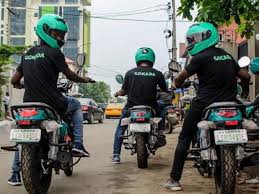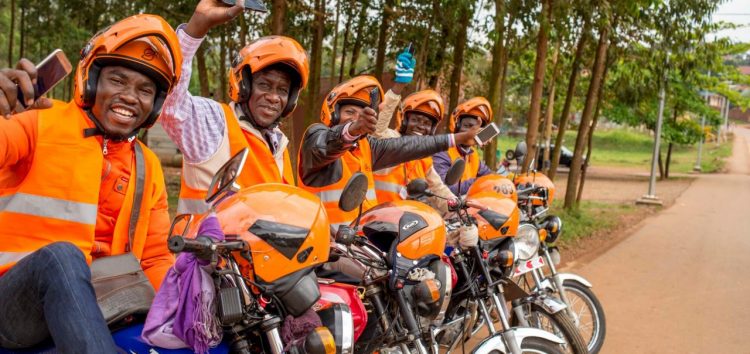By Temiloluwa Bamgbose
In 2012, the government of Lagos State signed into law the prohibition of motorbikes, popularly known as okada, of less than 200 Cylinder Capacity, from 475 roads in the state. The effect of the law was far-reaching, albeit double-edged. Motorbike accidents reduced significantly, bike-facilitated robberies and a number of other crimes also went down. On the other hand, the ban revealed the loopholes in the transportation system of the megacity and its border towns. Many nine-to-fivers complained bitterly about how hard it then became for them to get to work early. A few people with physical disabilities also complained about the convenience of bike transportation that they then missed. Soon everyone adjusted and life moved on.
Gradually, the bike riding business crept back. Many of the bikes became bigger with the required cylinder capacity while riders who could not evolve to meet the minimum standard of bikes moved required moved to the outskirts of the city. Some of them stayed on, growing bolder, more desperate and meaner. They broke more laws, rode in impossible places and generally took bigger risks. Somehow the bikes came back to become the lifeline of many Lagos commuters. From time to time, some taskforce from the government along with the police would seize bikes and arrest riders but despite all the challenges faced by the motorbike operators, they are still the top gainers in the commuting business.
One man’s meat…
“Motorbikes are fuel-efficient and easy to maintain,” says Marcus Ilya, an Okada rider operating on the Mowe-Warewa-Arepo-Berger axis of the Lagos-Ibadan expressway. On average, he makes N10,000 daily, since the beginning of the construction work that required blocking one side of the Kara-Berger corridor in the last quarter of year 2019. It is well over a hundred per cent of what he used to make before the construction began. “It is a very risky business but no work is easy,” says Ilya.
Okada riders in areas where the roads are riddled with potholes also find it an opportunity for increased profit. People want to go where they have to go on time, the roads are broken in many places and the cars have to slow down to get through, that is where we come in.” explains Sunday Iyang who rides from Mile12 to Ojota. “We know how to manage the road so we always have customers.”
Apart from the individual riders, the influx of companies operating bike-hailing services is a form of testimony to the lucrativeness of the commercial motorbike business in Lagos and in the country as a whole. The size of the company’s investment and the competition among the three top players in the industry that saw MaxNG and Gokada queuing behind late-comer-turned-market-leader Opay is also a shred of convincing evidence.

The motorbike-for-commercial-transportation industry in Lagos and indeed Nigeria is an opportunistic one. Yet, there seems to be a large opportunistic structure profiting from the disadvantage of the commuters. Motor park thugs, popularly known as agbéró, regularly take a slice of the motorbike operators’ profit. While the agbéró would not tell his take-home from per day, Samaila helps to calculate.
“They collect N100 from all the okada picking passengers from here to Berger or Kara Opic,” he said pointing to a road demarcation after Arepo junction. “If they collect from 10 people, that is N1000 and we are more than a hundred passing here daily.” Samaila suggests that these men who do nothing at all to deserve the monies they collect are huge beneficiaries of the construction.
Another man’s poison
Transport fares have more than doubled. Many commuters spend more than N2000 daily on transportation alone. Many have had to abandon their houses and move into apartments or squat with friends and relatives who live close to where the work. Apart from financial pressure, there is also safety to consider.
Anything on wheels that also can attain considerable speed is dangerous. The danger increases as speed increases and the number of tyres decrease. On Wednesday, October 30, last year an OPay motorbike rider and his passenger were crushed to death on Kara Bridge, Lagos-Ibadan Expressway. Two months earlier on August 10, the same year, two people were killed while five sustained injuries on the Mowe axis of the Lagos-Ibadan expressway when a Toyota Hiace bus lost control and rammed into a motorcycle. Recently, Commissioner for Information and Strategy, Gbenga Omotoso revealed that in the last three years, more than 200 cases of motorcycle accidents have been recorded monthly at health facilities across the state. In the same statement, Omotoso revealed that 30 robbery cases involving motorcycles were reported in 2019.
Respite may be in sight. One side of the bridge has been completed and the road was temporarily opened to avoid inconvenience during the yuletide. The work has resumed on the other side and the diversion has returned. However, according to the Federal Controller of Works, Lagos, Adedamola Kuti, work will be speedy on that side and, by February, work should be complete. Till then though, motorbikes, despite the risks associated with will always be to beneficiaries from whenever there is traffic jam either caused by maintenance or lack of it.



